Panic disorder is caused by panic attacks. When panic attacks occur suddenly, they often trigger severe physical reactions when no real danger is present or an obvious cause is apparent. You might feel very scared during a panic attack.
People who suffer from panic attacks may believe they’re losing control, going through a heart attack, or even going to die. An untreated panic disorder may result in other mental disorders and fears, difficulties at school or work and social isolation.
What is panic disorder?
Panic Disorder is a type of anxiety disorder. People with panic anxiety disorders suffer from recurring incidents of sudden panic attacks. According to the DSM-5, a panic attack is a sudden surge of intense anxiety or discomfort that reaches its peak within minutes.
Those who suffer from the disorder live in fear of panic attacks. If you suddenly feel a sense of overwhelming terror without knowing why you may be experiencing a panic attack. You may also experience physical symptoms, such as sweating, breathing difficulties and racing heart.
Almost everyone experiences panic attacks once or twice in their lifetime. An American Psychological Association study estimates that one in 75 people is affected by panic disorder.
Panic anxiety disorder is characterized by a persistent fear of experiencing another panic attack after you experience an additional panic attack (or any of its consequences) after at least one month.
It is still possible to manage and improve these symptoms, even though they are quite frightening and overwhelming. It is vital to seek treatment to reduce symptoms and improve your quality of life.
Also, check: Obsessive Compulsive Disorder (OCD).
Panic attack causes
There is no clear cause of panic disorder. However, there are some factors to consider:
- Genetics
- Major stress
- Stress-prone or emotionally reactive temperament
- Brain changes in certain ways
Recent research suggests that panic disorders are linked to genetics. A significant life transition can also trigger panic disorders. Life transitions such as moving away to college, getting married, or having a child can exacerbate stress, which can cause panic attacks.
Although some families may suffer from panic disorder, it’s unclear why family members have it and others don’t. Mental Health Professionals have found that multiple brain areas, as well as biological processes, can contribute to fear and anxiety.
It has been noted that people suffering from panic disorder mistake harmless bodily sensations for threats. It may be possible to create better treatments by learning the brain and body functions of panic disorder patients.
Also, check: Major Depression Disorder
Panic disorder symptoms

Young adults and teens tend to develop panic disorder symptoms under age 25. If you have experienced two or more two panic attacks, It could be a panic attack or if you constantly fear panic attacks, or you fear having another after having one.
Panic attacks cause intense fear that usually occurs suddenly and without warning. In most cases, an attack lasts between 10 and 20 minutes, but in extreme cases, panic attack symptoms may last up to an hour or more. Symptoms of panic attacks and experiences vary from person to person.
Common symptoms of panic attacks include the following:
- Palpitations or pounding/racing heartbeat
- Shortness of breath
- Choking feeling
- Dizziness (vertigo)
- Lightheadedness
- Nausea
- Sweating or chills
- Shaking or trembling
- Psychological changes, such as feelings of depersonalization and derealization.
- Numbness or tingling in your hands or feet
- Chest pain or tightness
- Fear of dying
- Fear of losing control
- Fear of going crazy
The symptoms of panic attacks usually occur without apparent cause. A person’s panic attack symptoms do not necessarily correspond to the danger they face in the environment.
The unpredictable nature of these attacks can adversely affect your functioning. Panic attacks can be caused by fear of another attack or by recalling a previous attack.
Panic attack vs. Panic disorder
An individual with panic disorder will always experience panic attacks. You don’t necessarily have panic disorder if you have a panic attack.
In diagnosing panic disorder, doctors take into account the frequency and amount of panic attacks. It is also important for them to consider your feelings surrounding them.
Panic attacks are common in people’s lives at some point. If you suffer from panic attacks frequently and fear their recurrence, you may have panic disorder.
Risk factors of panic disorder
It is not completely understood why panic disorder occurs. Certain groups may be more prone to develop the disorder, according to information about it, such as panic attacks.
As the National Institute of Mental Health points out, specifically, women have twice as high a risk as men of developing the disorder.
Also, check: Side Effects of Overthinking
Panic disorder diagnosis
If you feel like you are having a panic attack, you may need to seek emergency medical treatment. When someone goes through a panic attack for the first time, they think they’re having a heart attack.
When you visit the emergency room, the medical professional will perform tests to determine that your symptoms are related to a heart attack or not. It might be necessary for them to run blood tests to show that you don’t have another disease that gives similar symptoms or an electrocardiogram (ECG) to determine heart function.
Those with symptoms that are not an emergency will be advised to return to their primary care provider.
A mental health examination may be carried out by your primary care provider who will ask about your symptoms. Primary care providers will rule out all other medical conditions before diagnosing panic disorder.
Related: Phobia Disorder
Panic disorder treatment
Treatment for panic disorder aims to relieve or eliminate your symptoms. This can be achieved with therapy under the supervision of a qualified professional, as well as medication in some cases.
In most cases, cognitive-behavioral therapy (CBT) is typically prescribed. CBT therapy helps you manage your fear and understanding of your attacks by changing your thinking and behaviors.
Panic attacks can be treated with medications such as selective serotonin reuptake inhibitors (SSRIs), a class of antidepressants. The following SSRIs are prescribed to treat panic disorder:
- Fluoxetine
- Paroxetine
- Sertraline
Related: How to Stop a Panic Attack
In addition to medications, the following are sometimes recommended for treating panic attacks:
- SNRIs, another type of antidepressant, are serotonin-norepinephrine reuptake inhibitors (SNRI)
- Antiseizure drugs
- Beta-Blockers
- Benzodiazepines, such as diazepam and clonazepam, are commonly used as tranquilizers
- Several other antidepressants are used infrequently because of the possibility of serious side effects. One of these is monoamine oxidase inhibitors (MAOIs)
Besides these medical treatments, you can also take steps at home to reduce your symptoms. Here are some examples:
- Keeping a regular schedule
- Exercise regularly
- Deep breathing
- Making sure you have enough sleep
- Caffeine and other stimulants should be avoided
Recommended: Multiple Strategies To Control Overthinking
Complications
There is a high degree of treatment available for panic attacks. The embarrassment that many people feel prevents them from seeking help. You may be unable to enjoy life if you don’t treat panic attacks. There are several possible outcomes:
- Anticipatory anxiety: It is extremely anxiety-provoking to think that you may have a panic attack.
- Phobias: The fear of something specific is extreme, unreasonable, and referred to as a phobia. Among the most common types of phobias are acrophobia and claustrophobia.
- Agoraphobia: People with panic disorder are about two-thirds more likely to develop agoraphobia. Anxiety disorders cause people to be afraid of being in situations or places where they might have a panic attack. It is possible to become so paralyzed by fear that you cannot leave your home at all.
Panic attack prevention
Although panic disorder may not be preventable, it may be possible to treat it. Fortunately, you can mitigate your symptoms by avoiding stimulants such as caffeine and alcohol, as well as illegal drugs.
If you experience symptoms of anxiety after a distressing life event, it is important to keep an eye out for those. Consult with your primary care provider if you are concerned about an experience or exposure that you have had.
Read: How to Calm Anxiety Attacks
What to ask your doctor
You can improve your care by providing information and asking questions to your health care provider or doctor. The benefits of talking with your doctor include improved results, safety, quality, and satisfaction.
You can get tips at the website of the Agency for Healthcare Research and Quality.
Prognosis
It is hard to treat panic disorder when it is chronic (long-term). This disorder can be difficult to treat for some people. There may be times when symptoms are absent and times when symptoms are intense. Symptoms of panic disorder are typically alleviated through treatment.
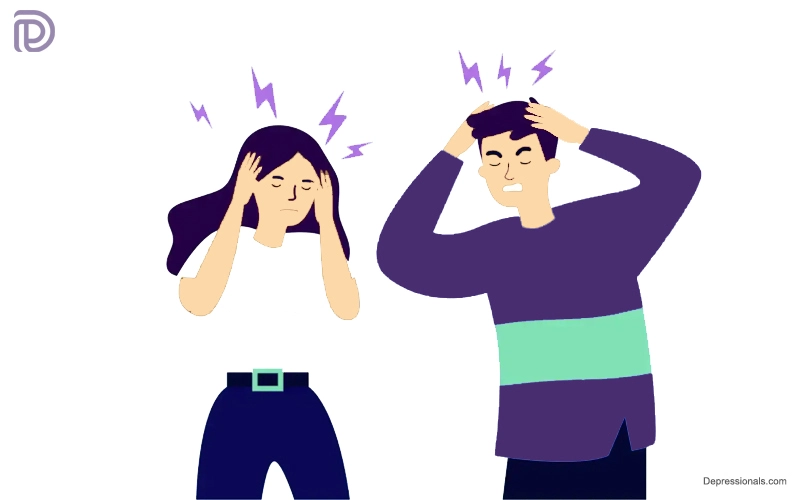
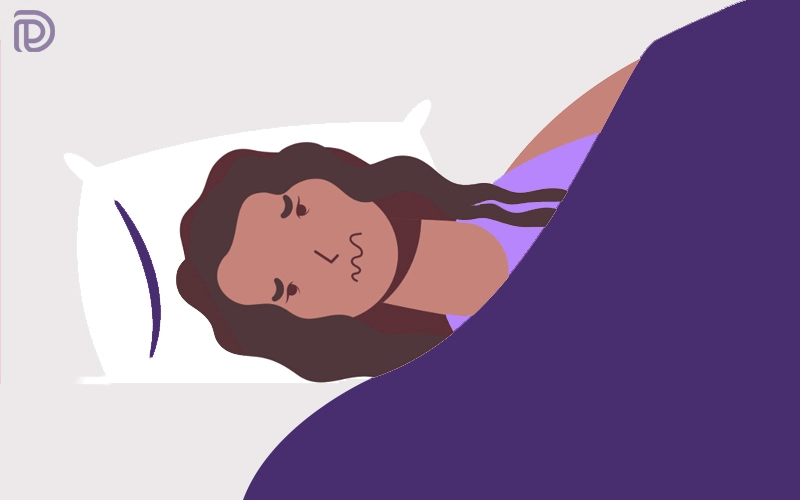
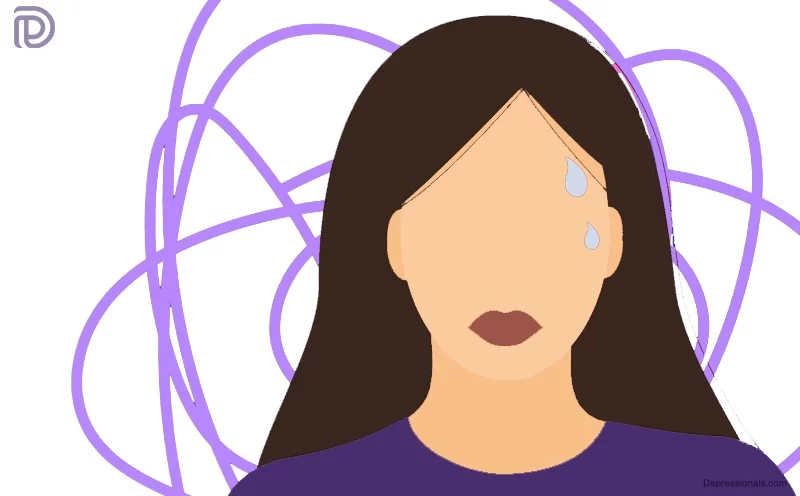
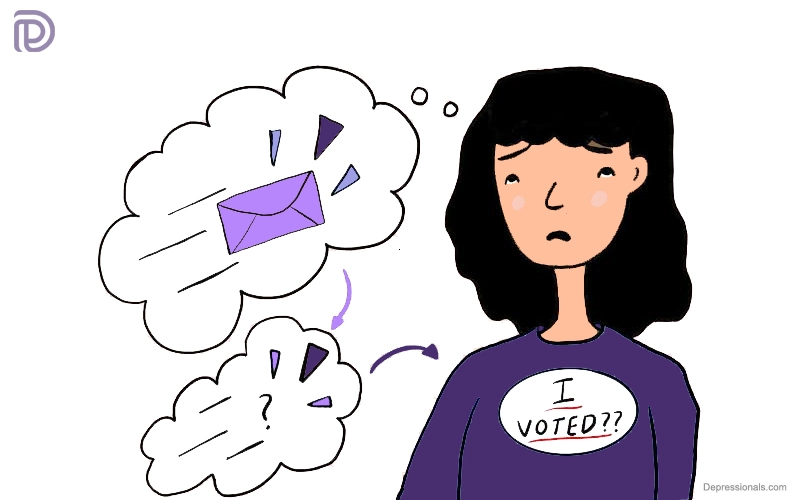
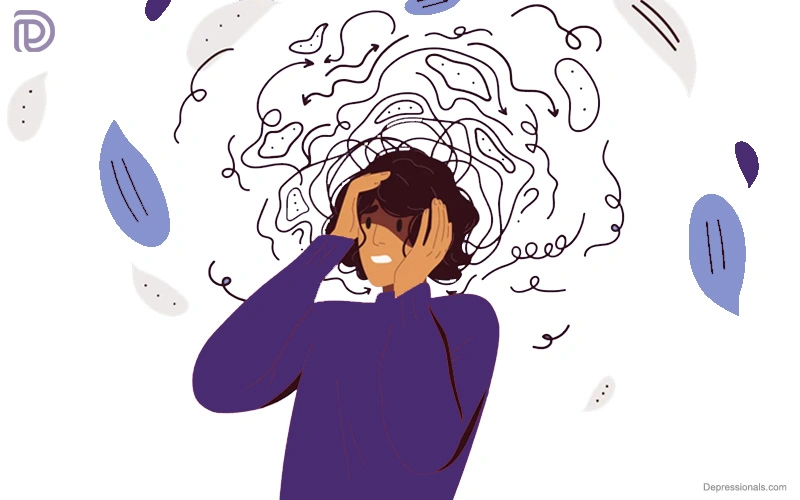

Does your site have a contact page? I’m having trouble locating it but, I’d like to send you an e-mail. I’ve got some suggestions for your blog you might be interested in hearing. Either way, great site and I look forward to seeing it grow over time.
Thanks for all your other tips I have really learned through the web site.
You are a very bright person!
Hi! I’ve been reading your weblog for a while now and finally got the courage to go ahead and give you a shout out from Lubbock Texas! Just wanted to mention keep up the great work!
Outstanding post however I was wanting to know if you could write a litte more on this subject? I’d be very grateful if you could elaborate a little bit further. Appreciate it!
Nice post. I learn something more difficult on different blogs everyday. It would all the time be stimulating to read content from different writers and observe a bit of something from their store. I’ll choose to make use of some with the content on my blog whether or not you don’t mind. Natually I抣l offer you a link in your net blog. Thanks for sharing.
Very nice put up, i certainly love this website, carry on it
Aw, this was a really nice post. In thought I want to put in writing like this moreover ? taking time and actual effort to make a very good article? however what can I say? I procrastinate alot and in no way appear to get one thing done.
Thanks for your advice on this blog.
Have you ever thought about publishing an e-book or guest authoring on other blogs? I have a blog based upon on the same information you discuss and would love to have you share some stories/information. I know my audience would value your work. If you’re even remotely interested, feel free to shoot me an e mail.
This site can be a walk-by means of for all the data you needed about this and didn抰 know who to ask. Glimpse here, and also you’ll positively discover it.
Good post made here.
I was suggested this website by my cousin. I am not sure whether this post is written by him as no one else know such detailed about my problem. You’re amazing! Thanks!
I would also like to add that when you do not already have an insurance policy otherwise you do not participate in any group insurance, you could well benefit from seeking the aid of a health agent. Self-employed or people having medical conditions typically seek the help of the health insurance dealer. Thanks for your post.
I have really learned new things by your blog.Thanks
Hello there! This is my first comment here so I just wanted to give a quick shout out and say I truly enjoy reading through your articles. Can you suggest any other blogs/websites/forums that go over the same subjects? Thanks for your time!
Hi there! I know this is kinda off topic however I’d figured I’d ask. Would you be interested in exchanging links or maybe guest authoring a blog article or vice-versa? My blog covers a lot of the same subjects as yours and I believe we could greatly benefit from each other. If you might be interested feel free to send me an e-mail. I look forward to hearing from you! Fantastic blog by the way!
I wanted to send you the bit of note so as to thank you very much as before just for the beautiful strategies you have shared on this site. It was simply extremely generous with you to provide freely all a lot of people would have sold as an electronic book to generate some dough for themselves, even more so given that you could have done it in the event you considered necessary. Those good tips likewise worked like the easy way to comprehend many people have similar desire the same as my own to learn a lot more on the topic of this issue. I am certain there are lots of more pleasant periods in the future for individuals that look into your blog.
I have been exploring for a little for any high quality articles or blog posts on this sort of house . Exploring in Yahoo I ultimately stumbled upon this website. Studying this information So i am glad to express that I’ve an incredibly good uncanny feeling I found out exactly what I needed. I so much definitely will make certain to do not overlook this website and provides it a look on a constant basis.
Thanks for making me to acquire new tips about computer systems. I also contain the belief that certain of the best ways to help keep your notebook computer in excellent condition has been a hard plastic-type material case, or maybe shell, which fits over the top of one’s computer. These kinds of protective gear are model precise since they are manufactured to fit perfectly over the natural housing. You can buy all of them directly from owner, or through third party sources if they are intended for your notebook computer, however only a few laptop may have a spend on the market. Yet again, thanks for your guidelines.
Hello! Do you use Twitter? I’d like to follow you if that would be ok. I’m undoubtedly enjoying your blog and look forward to new posts.
Thanks for the useful information on credit repair on this excellent web-site. The things i would advice people is always to give up a mentality they can buy currently and pay out later. As a society most of us tend to try this for many factors. This includes vacation trips, furniture, as well as items we really want to have. However, you need to separate your current wants out of the needs. If you are working to boost your credit score you really have to make some sacrifices. For example it is possible to shop online to save money or you can go to second hand shops instead of costly department stores pertaining to clothing.
Thanks a lot for giving everyone an extremely nice possiblity to read critical reviews from here. It’s always so sweet plus stuffed with amusement for me personally and my office co-workers to visit your blog really thrice a week to see the latest tips you have. Not to mention, I’m at all times impressed for the very good creative ideas served by you. Selected 2 facts in this posting are in reality the most effective I have had.
An impressive share, I simply given this onto a colleague who was doing somewhat analysis on this. And he in actual fact bought me breakfast as a result of I found it for him.. smile. So let me reword that: Thnx for the deal with! However yeah Thnkx for spending the time to debate this, I feel strongly about it and love studying extra on this topic. If possible, as you turn out to be expertise, would you thoughts updating your weblog with extra details? It is extremely helpful for me. Huge thumb up for this blog put up!
Hello 🙂 although sites we backlink to beneath are considerably not connected to ours, we really feel they’re truly really worth a go by, so have a look
The information you have provided is very useful to me.